Summary
Ian recounts his journey as the first UX hire at Salesforce and later at other companies, managing increasingly large and diverse teams. Faced with a misalignment in evaluating top and bottom performers across directors, he recognized a need for a shared, transparent framework. Ian developed a career coaching framework that treats careers like a design project, emphasizing flexibility over rigid ladders and empowering individuals to define their own paths whether they aspire to management or deeper individual contribution. Drawing parallels to design practices, he created workshops that use collaborative exercises, personal branding, and goal-setting to facilitate career conversations and development. Ian details how skills span core design, knowledge, technical abilities, communication, leadership, culture, and innovation - each essential in different ways depending on role and career stage. The framework helped standardize language, reduce promotion tension, improve one-on-one effectiveness, and build team camaraderie. The talk underscores the value of applying design principles inwardly to careers and teams, rather than only focusing outwardly on users.
Key Insights
-
•
Large UX teams often lack alignment on performance evaluations, causing stalled promotion discussions.
-
•
Career paths should not be rigid ladders but flexible frameworks like a jungle gym, allowing lateral moves.
-
•
Design thinking methods can be applied to career planning to empower employees to own their growth.
-
•
Not all high performers want to manage; leadership includes mentoring and influence beyond formal management.
-
•
Communication skills, including clear writing and storytelling, strongly impact career effectiveness and influence.
-
•
Knowing the product, industry, and competitive landscape deeply is crucial for UX roles.
-
•
A diverse skill set including technical, communication, culture, and innovation differentiates senior roles.
-
•
Career workshops pairing personal brand reflection with goal setting drive productive one-on-ones and clarity.
-
•
Standardized frameworks and language reduce promotion debates and foster healthier team dynamics.
-
•
Innovation requires a fearless mindset to challenge existing rules and push design and process improvements.
Notable Quotes
"Careers as ladders are what HR wants, but careers aren’t linear; they should be a jungle gym."
"Why don’t we do what we do for users but apply it to our own careers? Absolutely nutty, right? So we did."
"Leadership doesn’t only mean managing; it can be mentoring, product leadership, or technical influence."
"If you’re amazing at your job but no one listens to your research or design, does it really have impact?"
"Communication matters—sending an email to an executive with spelling mistakes can ruin your respect."
"Your career is a design project. It’s the only one you own, so own it like you would a product."
"People care about titles way too much. I had a guy whose business card said star-bellied sneak—love that."
"A workshop helps people map their skills, identify gaps, and make specific goals for career jumps."
"It’s huge to have a framework so managers and employees speak the same language around skills and growth."
"Innovation is about being fearless, breaking rules, and refusing to stop at the way things have always been done."
Or choose a question:


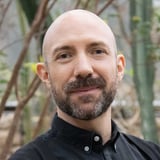

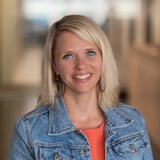


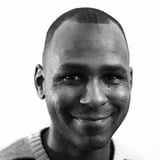

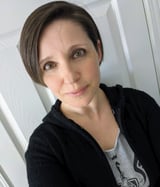
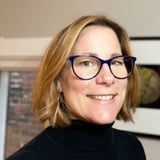


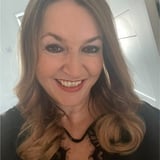
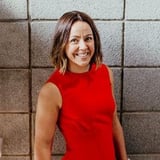
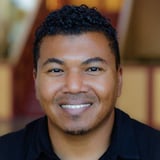
More Videos

"Timely interactions that log users out without saving progress cause abandonment, especially for people with disabilities."
Sam ProulxOnline Shopping: Designing an Accessible Experience
June 7, 2023

"Our evaluation tool is a Google Sheet so we can quickly make adjustments without being bogged down by unnecessary features."
Ignacio MartinezFair and Effective Designer Evaluation
September 25, 2024

"Pairing up as design soulmates was the first foundation that made all the difference for Signified’s design journey."
Sarah Kinkade Mariana Ortiz-ReyesDesign Management Models in the Face of Transformation
June 8, 2022

"Companies today are embracing these principles, seeing the value of user connection and self-actualization for business success."
Daniel GloydWarming the User Experience: Lessons from America's first and most radical human-centered designers
May 9, 2024

"AI systems can present speculative connections as established facts, so confidence ratings are critical."
Patrick BoehlerFishing for Real Needs: Reimagining Journalism Needs with AI
June 10, 2025

"Anyone can do a basic AI summary with zero control, but we offer robust, evidence-backed, scalable chat analysis."
Andy Barraclough Betsy NelsonFrom Costly Complexity to Efficient Insights: Why UX Teams Are Switching To Voxpopme
September 23, 2024

"We should reconsider the savior complex designers sometimes have — we’re not all powerful."
Alexandra SchmidtWhy Ethics Can't Save Tech
November 18, 2022

"Please don’t implement the Spotify model. It works for them, it won’t work for you."
Louis RosenfeldDiscussion: What Operations can teach DesignOps
November 6, 2017

"Discomfort and growth cannot coexist. You have to embrace discomfort to push innovation forward."
Mitchell BernsteinOrganizing Chaos: How IBM is Defining Design Systems with Sketch for an Ever-Changing AI Landscape
September 29, 2021
















